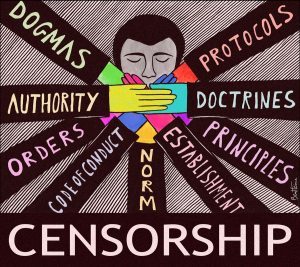In light of the upcoming Universal Periodic Review of the United States at the UN Human Rights Council in Geneva this week, Reporters Without Borders would like to make the following recommendations concerning access to information and press freedom in the US:
Book Early and Save up to $450 on Vacation Packages with Expedia! Find Great Deals in Hot Destinations only at Expedia.com!It’s Finally Spring Sale! Save up to 44% off hotels! – Expires 4/20/2011
1) American officials must review their methods for classifying information and improve transparency surrounding the Freedom of Information Act requests filed by civil society groups and the media
Several incidents over the past year have raised questions about the government’s use of national security concerns to try and curb media access to issues of legitimate public interest. The WikiLeaks release of a 2007 video of a US helicopter attack in Iraq that killed 12 people including two Reuters’ staff and the Pentagon’s decision to ban four journalists from military commissions at Guantanamo Bay a month later, although eventually reversed, highlighted the military’s perceived lack of transparency and inconsistencies in its compliance to the Freedom of Information Act (FOIA) requests.
2) The Federal Shield Law must allow blogs and whistleblower websites the same protection as it does to all other media organizations
National security issues are playing an important role in the consideration of the Federal Shield Law legislation, which is being delayed by proposals to exclude whistleblowing websites from source protection, mainly because of the political reaction to WikiLeaks publishing over 70,000 classified Afghan war documents. Such amendments would be, in Reporters Without Borders’ opinion, unfair and unnecessary, as the legislation already contains exemptions relating to legitimate questions of national security.
3) The Obama administration must ensure that commercial agreements between internet companies and content providers do not pose a threat to Net Neutrality or the free flow of information
In January 2010, Secretary of State Hillary Clinton reaffirmed the United States’ commitment to protect the Internet as a place for social development and emphasized the importance of equal access to knowledge and free exchange of ideas. However in August, Google and Verizon were reportedly nearing an agreement that could allow Verizon to relay online content to Internet users more quickly if the content’s creators are willing to pay for the privilege.
4) To regularly assess domestic press freedom issues and the working conditions of journalists throughout the country
Although Reporters Without Borders welcomed the enactment of the Daniel Pearl Act in May 2010, requiring the State Department to list countries that threaten freedom of expression and tolerate violence against journalists, our organization believes American officials must also monitor the press freedom situation within the US in the same manner.
Related Articles
- WikiLeaks Abuses “Freedom Of The Press” And “Freedom Of Speech!” (aaronrking.wordpress.com)
- Grant for press freedom watchdog (guardian.co.uk)
- Journalists’ arrests fuel concerns over Turkish press freedom (expatica.com)
- Hugo Chavez Gets Argentine Press Freedom Award (ergonom3.wordpress.com)
- Assange: “WikiLeaks is the intelligence agency of the people” (valorfreedom.wordpress.com)
- Protests at Sri Lankan editor’s arrest (guardian.co.uk)
- Chavez wins press freedom prize (bbc.co.uk)
- World Press Freedom Day 2011 Website Opens Registration and Event Agenda to the Public (advertisingindustrynewswire.com)
- Gaza journalists accuse Hamas of harassment (guardian.co.uk)
- Chinese activist artist Ai Weiwei detained (cbc.ca)












